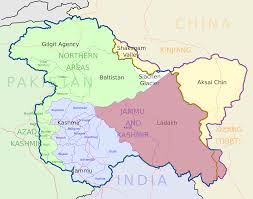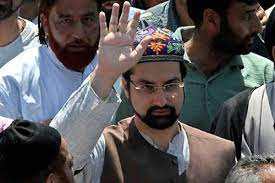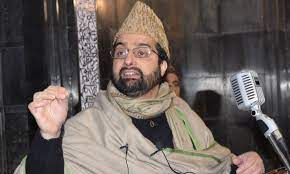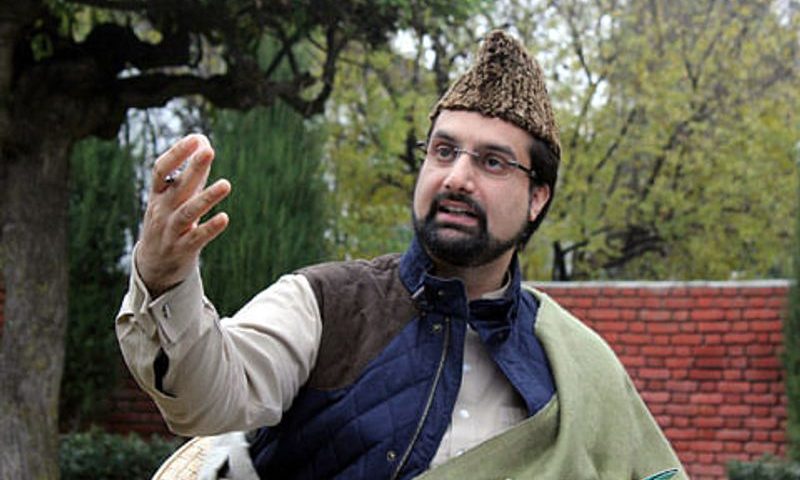 At a time when most of the separatist groups in Kashmir call on the international community to resolve the Kashmir issue, a US based research finds any third-party involvement in Kashmir a difficult proposition which “lacks capacity” to help resolve the matter.
At a time when most of the separatist groups in Kashmir call on the international community to resolve the Kashmir issue, a US based research finds any third-party involvement in Kashmir a difficult proposition which “lacks capacity” to help resolve the matter.
A team of experts from School of International and Public Affairs, Columbia University, USA in their research paper Civil Societies: Empowering Peace Constituencies in India & Pakistan call Kashmir a “highly politicized issue” where third-party involvement is difficult as it lacks the ability to support regional partners in both J&K and Pakistan Administered Kashmir over a long term.
The 2015 research paper, a copy of which is with The Kashmir Monitor, is authored by a team of five Columbia University political experts: Michele Bornstein, Reece Garrett Johnson, Shahrzad Mohtadi, Sarah Park, and Benjamin Weiss. The research is advised by Vishakha N. Desai, Special Advisor for Global Affairs to the President and Professor of Practice, Columbia University and Shehzi Khan from US Department of State. The paper was subsequently presented to the US Department of State.
The 48-pages research paper analyzes the role of civil society-led initiatives including trade expositions, cultural festivals, Track-II dialogues, capacity-building workshops, civil society summits, and countless other initiatives, Indians and Pakistanis have sought to create connections.
The researchers have done a sectoral analysis of Indo-Pak relations and given recommendations in each of them. The sectors include: Kashmir, Security and Defense, Trade and Business, Culture and Arts, Human Rights and Women, Youth and Education, and Water.
On Kashmir, the paper suggests ease of access between Indian and Pakistan Administered areas of the region.
“Track II initiatives by the Centre for Dialogue and Reconciliation, the Jinnah Institute, the Delhi Policy Group, and Pugwash in the United States have all sought to strengthen the free movement of trade and people, but have also encountered obstacles that undermine the incentives, capacity, and longevity of intra-Kashmir trade and peace initiatives,” it reads.
Taking reference from a study done by Indus Research Foundation and the centre for Peace, Development and Reforms, the researchers say that around 60 per cent of traders on both sides of Kashmir are interested in establishing confidence-building measures that facilitate trade and tourism thus proving that Cross-LoC trade has a lot of potential to enhance ties and peace initiatives.
The document also highlights work done by notable civil society initiatives like Jammu and Kashmir Joint Chamber of Commerce and Industry, Kashmir Institute for International Relations (KIIR), AJK Women for Peace for Cross-LoC dialogue, and Centre for Dialogue & Reconciliation (CDR) for enhancing Cross-LoC dialogue.
On security and defense, the paper observes that all international actors must be cautious in their Track II initiatives in India and Pakistan ensuring that their efforts are not misunderstood as foreign meddling.
“International actors must be careful not to try to influence the deliberations that take place under their banner; Indians and Pakistanis are keen to solve their own dispute,” reads an excerpt.
The research lays great emphasis on Indo-Pak trade relations which, as per it has a potential to generate 16.08€ billion annually.
It specifically mentions the role of different trade bodies including the Federation of Indian Chambers of Commerce and Industry (FICCI), the Confederation of Indian Industries (CII), the Karachi Chamber of Commerce and the Pakistan Chamber of Commerce.
Calling the restrictive visa regimes in both countries as over-regulated, inefficient, the paper states it hinders collaboration between businesses and people.
“India retains high tariff barriers for many Pakistani goods, and Pakistan remains unwilling to grant India Non-Discriminatory Market Access (NDMA), (limiting the products that can be imported into Pakistan),” says the report.
Quoting political economist Dr. Nisha Taneja, “Talks slow, but trade doesn’t,” the paper says, “Indian and Pakistani diaspora communities around the United States and internationally should be galvanized to support the foundation of India-Pakistan trade and business fora that focus on connecting mid-sized business owners in both countries.”
It also recommends setting up a virtual banking system as businesses across borders have stifled by the inability to transfer funds directly between India and Pakistan.
“This has led to billions of dollars in black market trade and required that trade be conducted in USD, or third party banking, leaving businesspeople on both sides susceptible to fraud, currency exchange fees, and the depreciation of their tender,” it reads.
The research recommends that both countries should explore options to create a virtual banking system that would allow business leaders direct access to financial services on either sides of the border.
Kashmir a highly politicized issue, third party involvement difficult: US research






